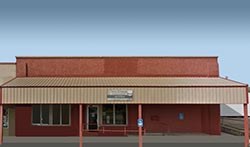Internet Policies
New Boston Public Library Internet Access Acceptable Usage Policy
This computer center officer access to elcetronic resources, including those on the Internet. Access is a privilege, not a right, and requires responsibility on the part of the user.
The Internet offers unlimited global access to all types of information. Not all sources are accurate, complete, currently legal, or philosophically acceptable to all people. Some information may be offensive, controversial, illegal, erroneous,etc. It is the responsibility of the user to select or reject online information based on good judgement and discretion.
A CAUTION TO USERS
Cautions:
1.) Parents ar cautioned to monitor their minor children's use of the Internet.
2.) Users are cautioned to guard closely the security of personal information, credit card numbers, computer accounts, passwords, and other types of authorizations when using the Internet.
3.) Users are cautioned to take steps to protect their systems from computer viruses and other destructive computer programs when downloading programs to disk for use on other computers.
4.) Electronic files should not be considered confidential. When required by law, the computing center must disclose all files to the extent required by law.
5.) The computing center is not liable for any direct or indirect and/or punitive damages (including lost data or information) sustained or incurred in connection with the use or unavailability of the system. Use of the Internet stations is on a first-come, first-serve basis. Time limits are imposed so that all patrons seeking access will have the opportunity to do so.
VIOLATIONS OF THE GUIDELINES
All electronic traffic originating from the computer center will be in accordance with acceptable use standards.
1.) Users under 17 years of age will be required to hav a parent or guardian with them to access the Internet.
2.) Internet use will be managed in a manner with the Internet Access and Use Guidelines which have been adopted by the New Boston Public Library and are availabe in the library.
3.) Internet access computers are normally available, subject to periodic maintenance during the library's regular operating hours.
4.) Use of the Internet access computers is on a first-come, first-served basis for a 30 minute block of time.
5.) To protect the computer from viruses, users MAY NOT use their own software programs. Users are not to save files to the hard drive. Files may be saved to a floppy disk or a rewritable cd that has to be purchased from the library for $1.oo. A new disk must be purchased each time the user comes to the library.
WARNING: Although we use a virus-checker on the Internet access computers, this will not completely protect you from the chance of getting a virus. Software downloaded from the Internet may contain a virus and you need to have a virus check on your computer. New Boston Public Library is not responsible for damage to a patron's disk or computer or for the loss of data, damage, or liability that may occur from the use of the Library's computers.
6.) We proved paper for printing at $.15 per page.
7.) Users are not allowed to bookmark (Favorites) sites for their personal use.
8.) Computers are shut down at 6:30 on Mondays and Thursdays, 5:30 on Tuesdays, Wednesdays and Friday and at 12:30 on Saturdays.
VIOLATIONS OF THE GUIDELINES
1.) Users violating these guidelines will be advised of the Library's guidelines for use and will be asked to comply.
2.) The Library reserves the right to terminate network connections for users who repeat violations of these guidelines after a previous warning.
3.) The Library reserves the right to prohibit violaters from future access to or use of the Library's online services, and to revoke all Library privileges.
4.) Users for any purposes that violate applicable federal, state, or local laws including copyright laws.
5.) Interfering with or disrupting other computer users, services or equipment.
6.) Attempting to gain or gaining unauthorized entry to other computing, information, or communications sources or devices.
7.) Malicious, threatening, harassing, or obscene behavior or language.
8.) Misrepresentation of oneself or the computing center.
9.) Activities that could cause congestion and disruption of networks and systems.
10.) Unsolicited advertising.
11.) To access, download, upload, transmit or distribute pornographic, obscene, or sexually explicit language or materials.
